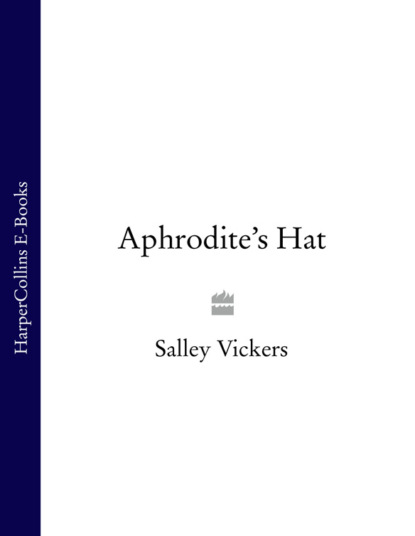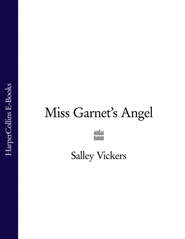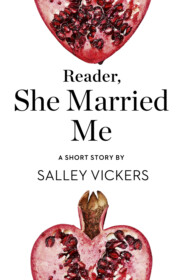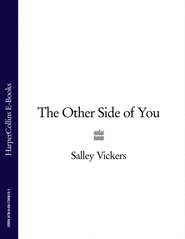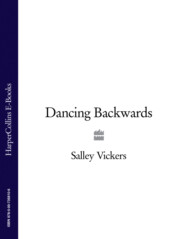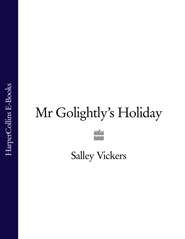По всем вопросам обращайтесь на: info@litportal.ru
(©) 2003-2024.
✖
Aphrodite’s Hat
Автор
Год написания книги
2018
Настройки чтения
Размер шрифта
Высота строк
Поля
‘Sit here.’ Charlie’s father sat on the bed where she had gestured and Charlie saw that his mother’s face had grown not pale but pink. ‘I don’t believe it,’ she said again. ‘How did you get here?’
‘Him.’ Charlie’s father nodded towards their son. ‘He found me. Wrote to me. Said you were ill and …’
‘I’m dying, you know that, don’t you?’
Charlie, who had had strict instructions from his stepfather to keep this news from his mother, felt a further rush of absolving relief.
‘It’s why I came, Jen.’
‘He tell you that?’ Charlie’s mother gestured towards him.
‘No. I guessed. You don’t mind me coming?’
‘’Course I don’t, you daft ‘appeth.’
Charlie said, ‘I’m going for a smoke and a wander. I’ll be back in a bit.’
He walked down the corridor, where he met the duty sister. ‘Mum’s got another visitor,’ he explained. He didn’t want anyone spoiling anything by blundering in with a change of her bag, or whatever.
‘That’s nice. Who is it?’
‘A relative. They’ve not seen each other in a while.’
‘Ah, nice,’ the sister said, vaguely benign. ‘It’s one of the good things about the Christmas season. People get together again who mightn’t otherwise.’
She had a point, Charlie granted, staring at the hospital Christmas tree. It was still decked, though it was twelfth night, still bearing brightly wrapped faux presents. His gran would have said it was the Devil’s luck not to have that all down by now. Or was it the last day they could safely be up before the bad fairies dropped out of the greenery to work their harm? What was it happened today? He’d forgotten. His gran would surely have told him.
He went outside for a smoke and looked at the saucepan in the night sky. We Three Kings of Orientar, he remembered suddenly. On their camels following the star. Bringing gifts, gold, frankincense and … he couldn’t remember the last one.
When he returned to the ward, his father was still sitting on the bed holding his sleeping mother’s hand. She looked peaceful. Myrrh, he suddenly remembered. That was the other one. Myrrh. They put it on dead bodies, his teacher had told them at school. Death had its good side. Because his mother was dying, he’d found his father. But when she was dead and gone he would have to live with the find. Be careful what you look for, you might find it, his gran had sometimes said.
The box of Roses chocolates, like a small wayside altar, stood unopened beside the jug of water on the bedside cupboard.
Noting Charlie’s glance, his father said, ‘She says she’ll have one later.’
‘D’you want to go?’
‘Better had. Pat’ll be … But I’ll come again, if …?’
‘Yeah, sure.’
‘I’ll bring Pat. That’s if …’
‘Yeah, sure.’
‘Perhaps I won’t. She didn’t mind, did she, Jen, that I came?’
A lifetime of minding. Minding for her as well as for himself. Minding her taunts, her viciousness. Minding her accusations. Minding her furious campaigns against his life, and, almost worse – for there was no way he could help or stop her – her own. Excusing her fits of temper, her cruelty, her unpredictable hysteria because she had suffered this shocking injustice. Was it simply that she’d made a mistake? Sent away a man who loved her and then regretted it? Could she so not acknowledge the enormity of what she had done that she had hidden behind this bogus story, this piece of twisted, pointless, self-justifying confabulation? Or was she just an out and out liar? How could he tell now? He’d had to make a life without his father, and soon he would be making it without his mother. And who were they anyway, his father and his mother? How would he ever know now?
‘She was pleased with the chocolates, wasn’t she?’ his father said. ‘She loved chocolates, Jen did. I used to buy them for her: Roses, Quality Street. It wasn’t true, you know, about them asking me to Hollywood. I wanted them to. I’d have gone. But I reckon the film wasn’t any great shakes after all. And they didn’t ask.’
‘Yes,’ Charlie said. He looked at his father’s red lobster hands, clenching and unclenching. ‘I expect she was pleased about the chocolates.’
‘Yes,’ said his father. ‘She did seem pleased, didn’t she?’
THE DRAGON’S BONES (for Penelope Fitzgerald) (#ulink_96666248-b7ac-54b8-befa-0c5d742a9789)
‘Will you take me to see the dragon’s bones? – I want to see the dragon’s bones,’ she said. They were staying in a pensione on the waterfront in Venice. A modest enough place, but expensive, as is anywhere in Venice which commands a prospect of sun and water. The room was sparely furnished but not uncomfortable: the looking-glass before which she undressed was framed in old gilt – the real kind not paint; and the bed, from where he watched her nightly ritual of disrobing, was a proper double and not two twins pushed together. ‘Good,’ she had said, patting the heavy old-fashioned mattress approvingly, ‘we shan’t have to bridge the gap.’ He was pleased that it seemed to matter to her that during the hours of darkness they should not be separated. Certainly to him it was important that her head lay against his shoulder through the anxious nights.
The truth was, the pensione was more than he could easily reach to, but to tell her was one of the many things he could not afford. The cost of the tiny cups of coffee and trays of daintily dressed snacks and drinks, which she ordered with charming ease, accumulated at the back of his thoughts, like dust in an over-used vacuum-cleaner bag, waiting to burst and pollute the pure sea air which smacked their faces heartily each morning.
To be fair, she was not aware that he was stretched. It was innocently that she executed her costly little commands. ‘Shall we have a drink?’ Or ‘I’m starving, let’s send down for one of their cheese-and-ham thingies, shall we?’ The steady traffic of hotel platters filled him with a terrified unease: he was far from certain that the credit on his card was going to meet the bill at the end of their stay.
And it had been his idea to come – he who had carried her off here with such promise and aplomb; she had not angled for it – there was no question of her throwing herself at his head; so that he could not now say, ‘Go easy’ or even suggest a picnic in the Giardini Pubblici, where they had passed old men muffled up in scarves, and whores in leather coats relaxing in the brilliant winter sun. One of the whores had caught his eye and he had been worried that the girl had noticed. It was lucky, he reflected – feeling guilty at the thought – that she watched her weight, for otherwise she might have demanded some grand repast as recompense. His happiness in her company was daily compromised by the fear that she might suddenly suggest dinner at one of those frighteningly grand hotels – the Danieli or, please God not, the Cipriani.
So that when, lying on her stomach on the bed, her legs crossed and swinging back and forth over her bottom like a much younger girl – his kid sister, for example, as he remembered her before their mother died – she had found, in the pages of the guidebook, a reference to some bones in the old church of Murano, the island where they blew glass, it was the greatest relief to him. Here was an opportunity for benevolence which could cost no more than a boat-ride. And he so longed to indulge her.
‘A princess should see a dragon, of course!’ He was a little in love with his own humorous riposte.
The refracted light from the water, as they waited for the vaporetto, settled on her like a blessing or a prayer. She stood, perched on her high-heeled boots, like some exotic teetering crane bird. The big coat she was wrapped in contributed to the sense of feathers. She had been wearing it, the pale grey coat, that day he had seen her first – in the park, sitting on a bench reading, where he had stopped to sit too, drawn by her grave absorption in what she read. There had been a stillness about her, he remembered now.
He compressed his eyes against the sun to observe her better. She was watching for the boat. There was something childlike about her imperious wish that each of the craft which called at the landing-stage be theirs; so that when at last theirs did arrive, he felt sufficiently free of the constraining worry to be able to tease her just a little, once they had found their way aboard, and to tuck safe in under her hat a fair strand of hair which the salt wind was whipping about. It was good to take charge.
They sat at the nose of the boat where the wind flirtatiously competed with her over the hat.
‘Take it off,’ he suggested; and she did, so that later, she remarked, stepping out on to the landing-stage at Murano, that the wind must have left her looking ‘like a witch’ and, clearly, that must have been his intention – so that no one else would look at her but him.
He had to fight off a certain surliness descending at this, for somewhere in his mind there was, indeed, the thought that he wanted her to himself; wanted to be rid of the calculating glances of men who appraised her young body. His own body was far from young.
Passing a trattoria on the fondamenta, where a waiter was already laying out the tables – securing paper cloths at the corners with steel clips against the wind – he imagined, as he steered her through the narrow gap, the waiter’s cynical black eyes following them and determined they would not go back there for lunch.
The church was old, twelfth century the guidebook said. It quoted Ruskin and he took a certain pride in knowing who Ruskin was and why his opinion was worth hearing. ‘Ruskin praised it,’ he explained to her, ‘but then it was restored later on in the nineteenth century,’ and she gave a slight shudder as if to reassure him that she knew that such barbarous practices were to be deplored.
But restoration or no they agreed it was undeniably beautiful – the old mellow brick church.
Inside, they stood, slightly awed, together on the threshold of the ancient billowing floor. Before them, in the dim curve of the apse above the altar, there hovered an elongated figure.
Set in an unadorned vista of scintillating gold, the young mother of God held up her palms in an attitude of naked supplication, as if, surprised by some interloper, she were protecting her modesty. Instinctively, he crossed himself, and genuflected, making the gesture of obeisance.
‘You’re not Catholic!’ she exclaimed.
He had never said – why should he? He no longer practised; but there was something exasperating in the way she had spoken.
He felt intruded upon, and bundled away the feeling with an attempt at casualness. ‘Not now. But it sort of sticks.’
His wife’s face, puckered in angry astonishment the day he had told her he was leaving, interposed itself between the vision of the blue-gowned Virgin in her gold-tasselled stole.
‘Oh no,’ she said, ‘I like it that you are,’ and he felt annoyed with himself for feeling grateful. The marriage vows were for life – his wife had sent fat, voluble Father Michael to remind him.





